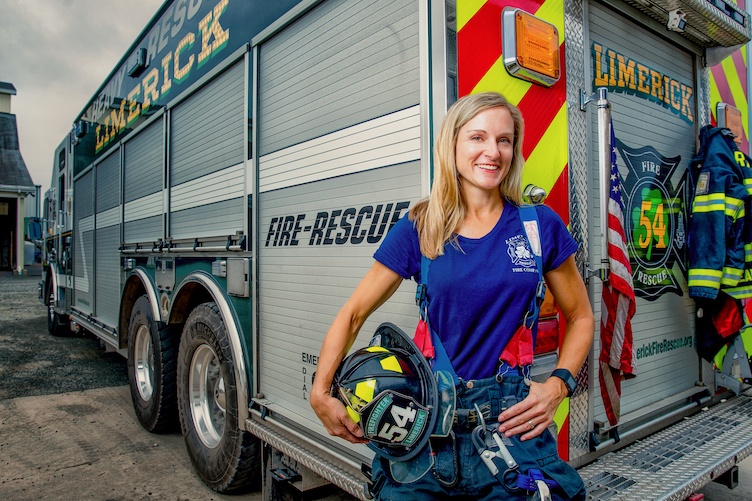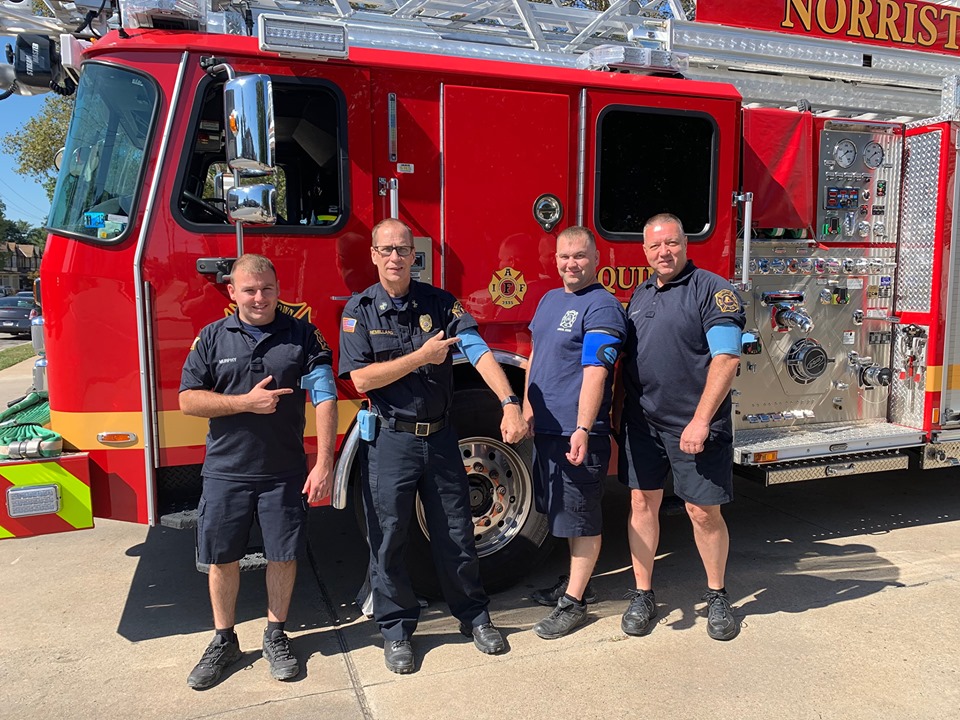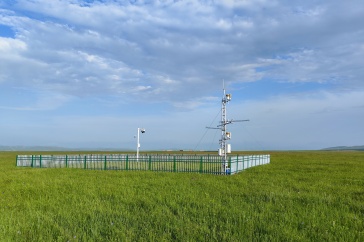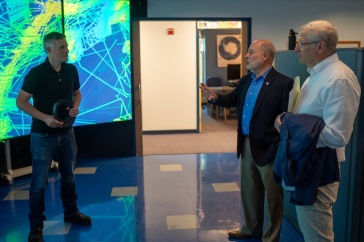
Exercise science researcher Deborah Feairheller, herself a volunteer firefighter, studied blood pressure among firefighters. Photo by Anthony Barbato.
When the pager goes off, firefighters’ blood pressure jumps.
That’s the finding of new research by Deborah Feairheller, UNH clinical associate professor of exercise science, and student collaborators. The research, presented at the American Heart Association’s Scientific Sessions recently, has implications for the nation’s firefighters, who have disproportionately high blood pressure that puts them at elevated risk for heart attacks and strokes.
“All emergency and first responders should be aware of their health. They should know what their typical blood pressure level is and be aware of how it fluctuates, and if they have high blood pressure, they should make sure it is well-controlled,” says Feairheller.
“The risk is real. The job that they’re doing is so stressful.”
Feairheller’s team fitted 41 volunteer and municipal firefighters with portable blood pressure monitors they wore while on call. The subjects’ systolic blood pressure — the top number that’s typically very responsive to external stimuli — was nine percent higher during fire calls. But diastolic blood pressure, the lower number that remains relatively stable, also jumped, surprising the researchers. Even false alarms or simply riding in emergency vehicles prompted elevated blood pressure.
“If I clapped loudly your systolic blood pressure would increase. I expected to see systolic going up,” says Feairheller. “But when diastolic numbers increase, that means your heart’s not having time to rest.”
And that, she says, is concerning for firefighters, who are more likely to have hypertension than the general public (75% of firefighters compared to almost half of American adults overall). Indeed, more than half the line-of-duty firefighter deaths are cardiac. “The risk is real. The job that they’re doing is so stressful,” Feairheller says. “I hope that our research can help identify occupational factors that affect blood pressure and increase awareness among this population.”

Norristown, Penn., firefighters Kevin Murphy, John Remillard, Andrew McIntyre and Bill Epright wear ambulatory blood pressure monitors. Photo by Anthony Barbato.
A volunteer firefighter for the past decade, Feairheller’s very first house fire inspired her to apply her research in exercise science to her avocation. “After six hours of hard work in hot gear, I looked around and saw a lot of overweight, out of shape, hypertensive firefighters sitting in the grass,” she recalls. “I knew my blood pressure was elevating when I was working on scene. I thought, ‘there’s a niche here that needs to be explored.’”
“Given the rate of impaired heart health and cardiac related deaths in firefighters, understanding how their cardiovascular system responds to different components of their job is essential,” says Paige Rynne ’22, an exercise science major and first author on this study. Rynne, from Ancaster, Ontario, says her role as research assistant honed her focus on medical school.
“It was great to gain hands-on experience, especially with such an amazing team,” says Rynne, who is also a forward on UNH’s women’s hockey team. “My experience really piqued my interest into both how the cardiovascular system responds to different stimuli, and research in general.”
These findings are part of a larger study exploring whether specific diet and exercise interventions could lower firefighter blood pressure. Feairheller hopes to expand this subset of that study, which only involved 41 subjects who were primarily male and all white.
In the near term, she’s hopeful this study could spark some changes among firefighting services. “Get some blood pressure monitors in your firehouse and have your firefighters track their blood pressure,” she advises, noting that blood pressure is one cardiac risk factor that can be mitigated with diet, exercise and medication. “Teach firefighters about blood pressure, and make sure they’re monitoring their own.”
In addition to Rynne, UNH co-authors on this study are Stephanie Donahue, a master’s student in kinesiology; Carly McMorrow ’22; Andrew Almeida ’22; Will Sherman ’22; and Myra Arsenault ’21. The study was funded by the American Heart Association.
Watch a video of Feairheller discussing her research.
-
Written By:
Beth Potier | UNH Marketing | beth.potier@unh.edu | 2-1566



















































